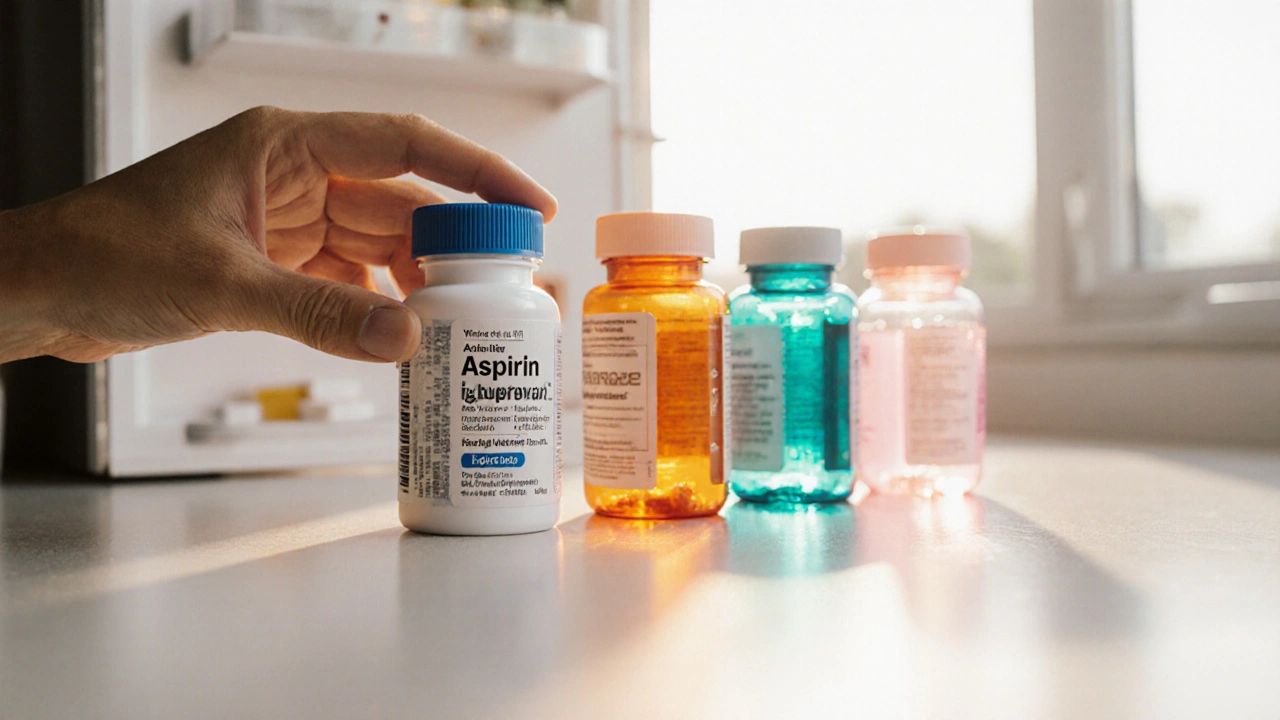Understanding Acetaminophen and Its Effects on the Liver
Before diving into the potential dangers of acetaminophen and liver damage, it's important to understand what acetaminophen is and how it works. Acetaminophen, also known as paracetamol, is a commonly used over-the-counter medication that provides relief from pain and reduces fever. It can be found in various forms, such as tablets, liquid suspensions, and as an active ingredient in many combination medications.
Acetaminophen works by inhibiting the production of prostaglandins, which are chemicals in the body responsible for inflammation and pain. While it is generally considered safe when taken as directed, excessive amounts of acetaminophen can lead to liver damage. In this article, we will explore the reasons behind this, how to recognize the warning signs, and what you can do to protect your liver.
How Acetaminophen Can Cause Liver Damage
The liver plays a crucial role in breaking down and removing toxins from the body, including acetaminophen. When taken in appropriate doses, the liver can safely metabolize and eliminate acetaminophen. However, when excessive amounts of the drug are taken, the liver can become overwhelmed, leading to the production of a toxic byproduct called N-acetyl-p-benzoquinone imine (NAPQI).
NAPQI is highly reactive and can bind to liver cells, causing oxidative stress and damage. If not neutralized, NAPQI can lead to acute liver failure, a life-threatening condition that requires immediate medical attention. The risk of liver damage increases with higher doses of acetaminophen and can also be influenced by factors such as alcohol consumption, fasting, and certain medications.
Recognizing the Warning Signs of Liver Damage
It's essential to be aware of the warning signs of liver damage, as early detection and intervention can help prevent serious complications. Symptoms of acetaminophen-induced liver damage can initially be subtle and may include:
- Nausea and vomiting
- Loss of appetite
- Fatigue and weakness
- Headache
As liver damage progresses, more severe symptoms may develop, such as:
- Jaundice (yellowing of the skin and eyes)
- Dark urine and pale stools
- Abdominal pain and swelling
- Confusion and altered mental state
- Bleeding and bruising easily
If you suspect that you or someone you know may be experiencing liver damage due to acetaminophen, it's important to seek medical help immediately.
Preventing Liver Damage: Dosage and Safety Precautions
One of the most effective ways to prevent liver damage from acetaminophen is to follow the recommended dosage guidelines. For adults, the maximum daily dose of acetaminophen is generally 4,000 milligrams (mg), although some experts recommend not exceeding 3,000 mg to reduce the risk of liver damage. Be sure to read the labels of all medications you take, as many combination products contain acetaminophen, which can lead to accidental overdose.
Additionally, take the following precautions to protect your liver:
- Avoid consuming alcohol while taking acetaminophen, as it can increase the risk of liver damage.
- Inform your healthcare provider of all medications you are taking, as certain drugs can interact with acetaminophen and affect liver function.
- Do not take acetaminophen if you have pre-existing liver disease or a history of liver problems without consulting your healthcare provider.
Treatment Options for Acetaminophen-Induced Liver Damage
If caught early, acetaminophen-induced liver damage can be treated with an antidote called N-acetylcysteine (NAC). NAC works by replenishing the body's supply of glutathione, a powerful antioxidant that helps neutralize NAPQI and protect liver cells from damage. The effectiveness of NAC depends on how quickly it is administered after an overdose, so it's crucial to seek medical help as soon as possible.
In severe cases of liver damage, a liver transplant may be necessary to save the patient's life. This is why it's so important to be aware of the risks associated with acetaminophen use and to take the necessary precautions to protect your liver.
Conclusion: Ensuring Safe Use of Acetaminophen
Acetaminophen is a widely used and generally safe medication when taken as directed. However, it's crucial to be aware of the potential risks associated with excessive use and liver damage. By following the recommended dosage guidelines, being mindful of other medications that contain acetaminophen, and taking the necessary precautions to protect your liver, you can continue to use acetaminophen as a safe and effective pain reliever and fever reducer.



